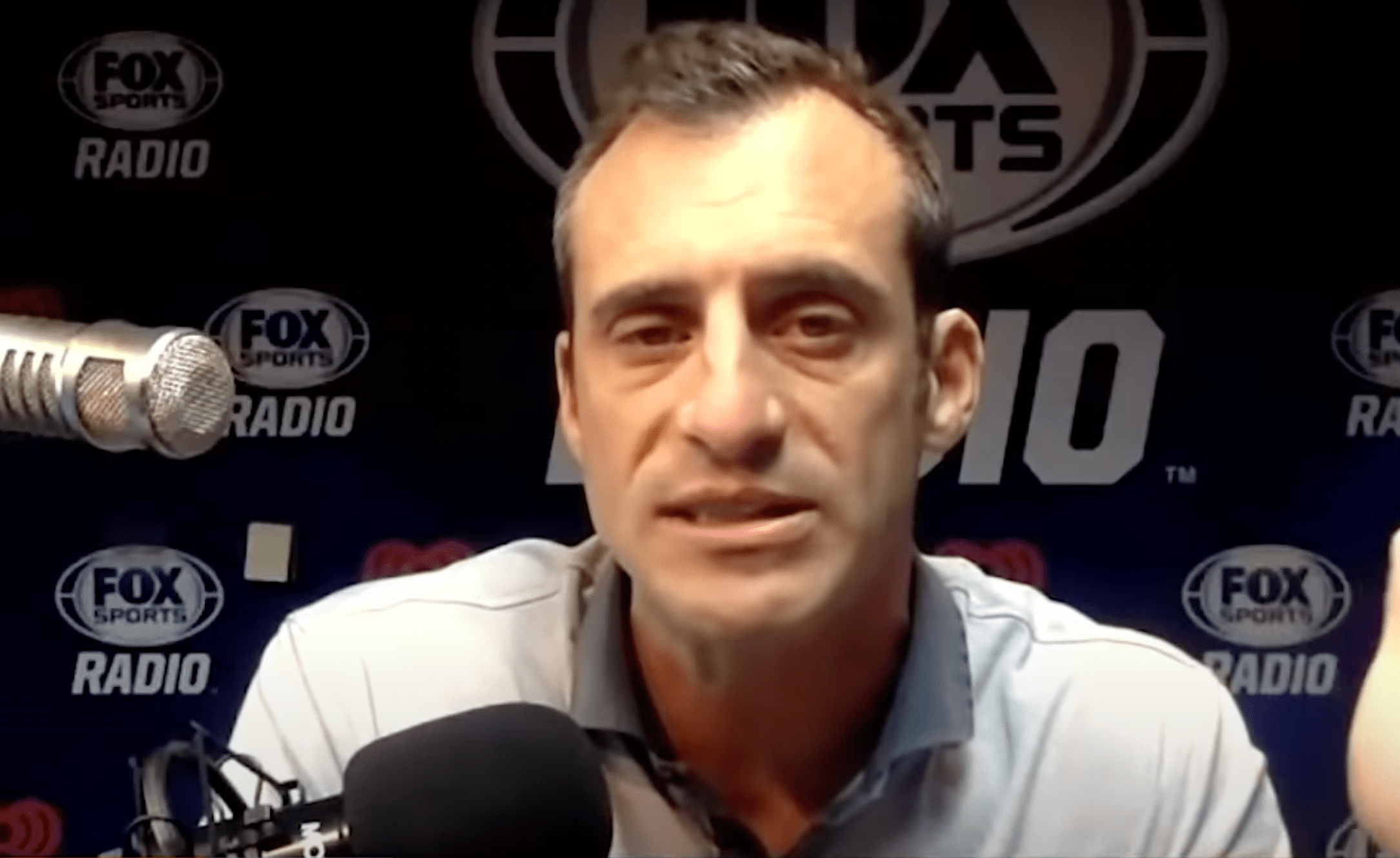Fox Sports Radio nitwit Doug Gottlieb, who makes his living by coming up with half-assed takes for the benefit of the sorts of maniacs who listen to sports radio, got himself into trouble when he applied that same rigor to his reporting. Gottlieb posted a tweet in June about the conflict that led Dodgers all-star Freddie Freeman to part with his longtime agent Casey Close over the summer. In response, Close sued him for libel. On Wednesday, Gottlieb ate shit and admitted that he fucked up.
On June 28, ESPN's Buster Olney reported that Freeman fired Close, of Excel Sports, due to lingering bad feelings over failed contract extension negotiations with the Atlanta Braves, for whom Freeman had then played his entire career. According to Olney, Close attempted to resolve a longstanding stalemate with the Braves by imposing a "final and immediate deadline" for Atlanta general manager Alex Anthopoulos to choose between two proposals, both of which were "significantly higher" than Atlanta's longstanding offer. When Anthopoulos declined to meet these conditions, talks reached a dead end, and the Braves moved on and traded for Matt Olson. Freeman was left to sign a long-term deal with the Dodgers. The first baseman was initially pissed at the Braves, reported Olney, until he eventually met with Anthopoulos and talked it out, whereupon his anger shifted to Close, who he soon fired.
The day after Olney's report, Gottlieb posted a tweet reporting a much more scandalous version of this sequence, claiming that Close "never told Freddie Freeman about the Braves final offer" because he "knew Freddie would have taken the ATL deal." The Dodgers deal pays at least $22 million more in total salary than the one Freeman declined from the Braves, but he could wind up with less money in the end, when factoring in deferrals and taxes. Gottlieb did not present this as a theory or a rumor, but as fact. It's a hell of a thing to claim that a prominent and powerful sports agent lied to a big-name client and sandbagged extension negotiations in order to steer the player into free agency. This is the sort of detail you would have expected to have turned up in Olney's reporting, which otherwise laid out a pretty specific timeline of negotiations. Even if Gottlieb got it from sources, as he later claimed, he was the only one who had it, which was an immediate red flag.
An eye-popping breach of fiduciary duties is not something to allege from a Twitter account if you don't have the goods, and it soon became apparent that Gottlieb did not even have one good, let alone multiple. A little over two weeks after Gottlieb fired off his tweet, Close and Excel Sports filed a libel complaint with the District Court of the Southern District of New York, calling the allegation in Gottlieb's tweet "false, disparaging, and derogatory," claiming that it caused injury to the "names, businesses, and reputations" of Close and Excel, and asking the court to impose compensatory and punitive damages.
It took about two months to resolve this situation, but Gottlieb finally deleted the tweet, retracted its claims, and publicly apologized:
Re: Casey Close/Freddie Freeman negotiations pic.twitter.com/dhFD8dj49H
— Doug Gottlieb (@GottliebShow) September 7, 2022
This is yet another reason why it's wise to disregard any original reporting offered by a sports talk radio host. I don't know exactly why they get their facts wrong as often as they do—maybe the incentives are screwy, or maybe the job naturally attracts pea-brained bozos—but they do. With Gottlieb, it's not even worth wasting the grain of salt. The libel complaint is embedded below.






